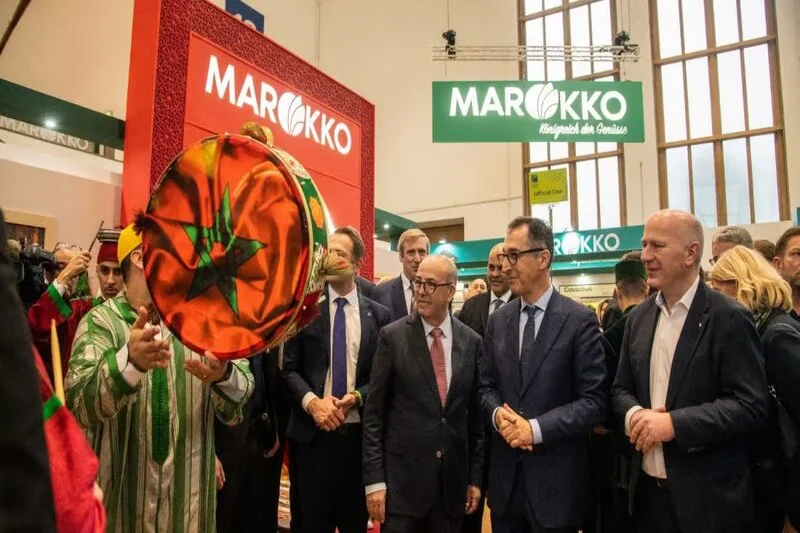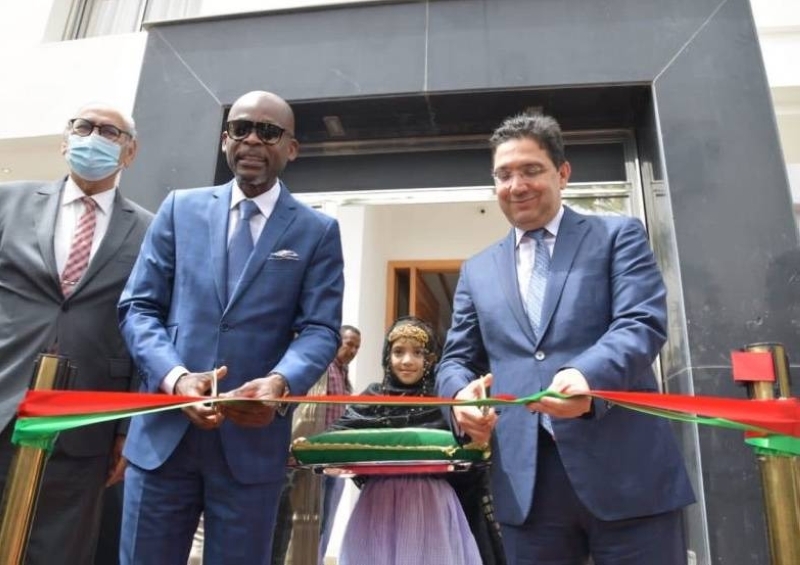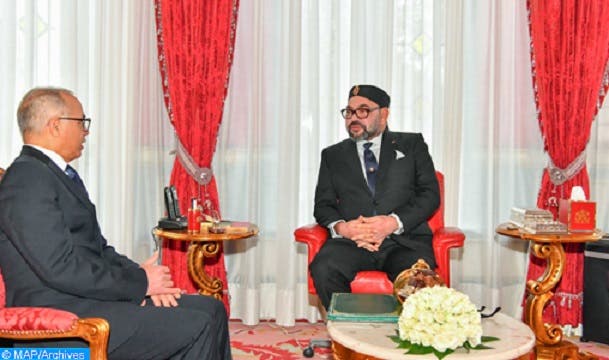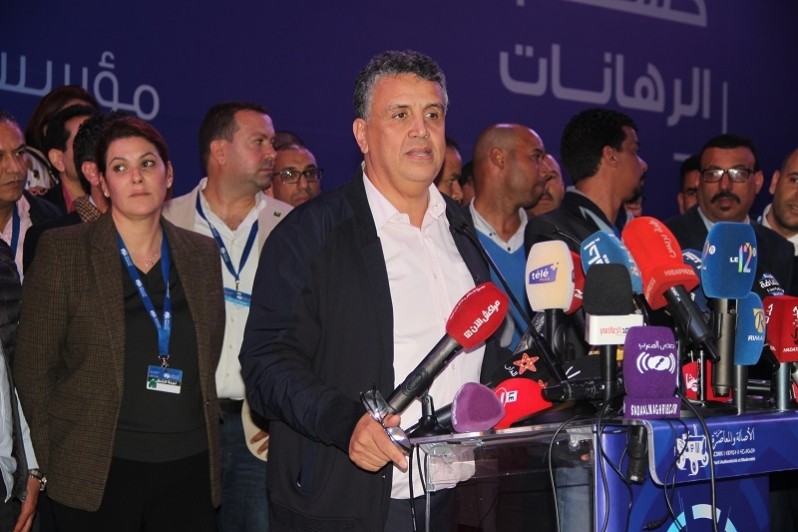Morocco’s commitment to transforming its food system in order to boost its resilience and consolidate its achievements in matters of food security, its innovative practices and successful experiences in bioeconomy were highlighted in Berlin before 17th Global Forum for Food and Agriculture (GFFA).
Minister of Agriculture, Ahmed El Bouari, who represented Morocco at the Forum, held on the sidelines of Berlin’s Green Week (January 17-26), highlighted Morocco’s sectoral strategies, Generation Green, Halieutis and Forests, as well as the Kingdom’s commitment to transforming its food system in order to boost its resilience and consolidate its achievements in food security.
Developing bioeconomy is one of the transformation paths adopted by the Kingdom as part of this process, the Minister said, stressing the importance given to food security in the transition towards a responsible bioeconomy.
In this respect, El Bouari presented the innovative practices and successful experiences in circular bioeconomy, mainly the transformation of fishing subproducts into aquaculture feed and biofertilizers, the use of agro-food waste for gas production, and the conversion of olive oil processing residues into energy and biofertilizers.
Regarding international cooperation, El Bouari emphasized the pivotal role of South-South collaboration in facilitating the exchange of technical innovations to benefit the African continent.
The 17th GFFA edition, attended by more than 60 agriculture ministers, focused on the theme “Shaping a Sustainable Bioeconomy,” against a backdrop of climate, health, and geopolitical crises that pose significant threats to global food security.
On the sidelines of the event, the Moroccan and German Agriculture Ministries sealed a declaration to create a Morocco-Germany working group to bolster cooperation in food and agriculture.
The working group aims to launch a structured platform intended for boosting existing cooperation, intensifying exchanges between the two countries, consolidating ongoing partnerships, and providing an institutional framework for regularly discussing current issues and concerns.
It also seeks to promote collaborative and sustainable approaches in the areas of food security, efficient management of natural resources, and the resilience of agricultural systems in the face of global challenges.
The group will hold annual meetings to address shared issues and concerns, particularly regarding food security, sustainable management of natural resources, and agricultural resilience to global challenges.
Morocco is “an important partner” for Germany as well as for the European Union (EU), mainly in agriculture, Germany’s Federal Minister of Food and Agriculture, Cem Özdemir, told the media after the signing of the declaration.
“We henceforth want to elevate the ties [between Germany and Morocco] to a higher level and advance together,” Özdemir said.
The initiative for a joint working group makes perfect sense, according to the German official, as both countries face common challenges such as the climate crisis, water resource management, and supporting farmers.
Morocco’s pavilion at Berlin’s Green Week (Grüne Woche) featured 21 exhibitors representing 39 cooperatives from the Kingdom’s 12 regions. It showcased quintessential Moroccan products, including argan oil and its derivatives, olive oil, saffron, dates, as well as aromatic and medicinal plants.
A global benchmark for agriculture, Grüne Woche brought together over 1,500 exhibitors from around 60 countries and attracted nearly 400,000 visitors. The event positions Berlin as a major hub for discussions on food, agriculture, and horticulture.



